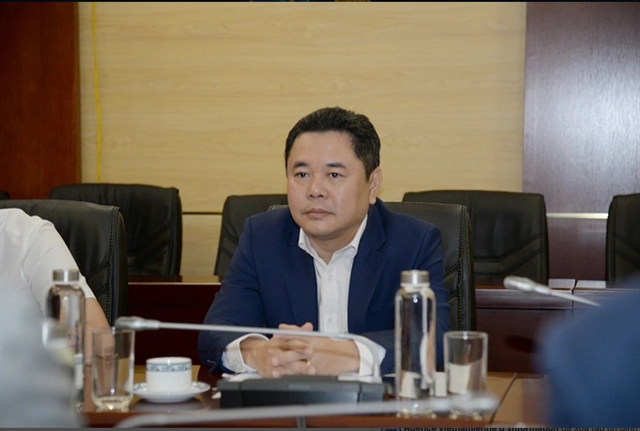 Economy
Economy


|
| Deputy Governor of the State Bank of Vietnam Nguyễn Ngọc Cảnh. Photo VPG |
HÀ NỘI — Việt Nam’s hosting of the signing ceremony of the United Nations Convention against Cybercrime (Hanoi Convention) marks a major step in its efforts in global integration on cybersecurity and financial security, underscoring the country’s determination to strengthen its defences against money laundering and other high-tech crimes.
According to Deputy Governor of the State Bank of Vietnam (SBV) Nguyễn Ngọc Cảnh, improving the anti-money laundering (AML) legal framework is a core task under the Government’s National Action Plan. The SBV’s Circular No 27/2025/TT-NHNN, effective November 1, provides guidance for several provisions of the Law on Anti-Money Laundering and represents a significant step forward.
The circular regulates that financial institutions and payment intermediaries must report domestic electronic transfers worth VNĐ500 million (about US$19,000) or more, or international transfers of $1,000 and above, while strengthening mechanisms for monitoring, reviewing, and temporarily suspending suspicious transactions. The full digitalisation of reporting processes is expected to enhance transparency and reduce risks associated with manual processing.
Alongside tighter reporting and oversight, the government is expanding its regulatory scope to cover digital assets — a high-risk area for money laundering. Particularly, Resolution No 05/2025/NQ-CP on piloting a framework for the digital asset market mandates strict AML compliance to prevent cross-border money laundering via virtual assets.
Dr. Nguyễn Thái Hà, head of the Faculty of Law at the Banking Academy, said Việt Nam’s AML framework has largely aligned with international standards but remains fragmented, especially in regulating virtual assets and digital transactions that criminals could exploit.
“The absence of a comprehensive legal framework for virtual assets is currently the biggest loophole that money launderers can exploit,” he noted, adding that Việt Nam needs to harmonise its legal system, improve implementation, and enhance the capacity of stakeholders to identify suspicious activities, including those using new and complex methods.
With a stronger legal foundation, technology will play a critical role in enforcement. Hà suggested adopting artificial intelligence (AI) and big data analytics in transaction monitoring systems and called for closer coordination among the SBV, the Ministry of Public Security, and the Ministry of Information and Communications to ensure timely information sharing on transactions, identities, and fund flows.
He added that swift detection and strict punishment of AML violations are vital to maintaining a strong deterrent effect.
Internationally, Việt Nam’s hosting of the Hanoi Convention signing ceremony underscores its commitment to global cooperation in data sharing, financial tracing, and preventing transnational crimes, reinforcing both national financial security and the global fight against cross-border money laundering in the digital era. — VNS




